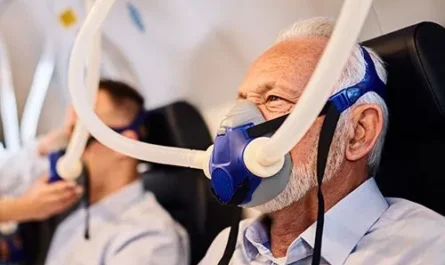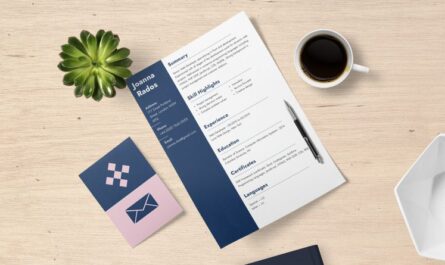In today’s digital age, the Internet is integral to various aspects of life, including educational pursuits. Students rely heavily on the internet for social networking, research, online classes, and entertainment. However, public Wi-Fi networks often pose security risks, as hackers can intercept data, leading to fraud and identity theft. This is where Virtual Private Networks (VPNs) come into play.
VPN policies can vary widely across educational institutions. Some schools and universities permit the use of VPNs, while others restrict them to prevent distractions like online gaming, torrenting, or accessing sites that may violate copyright laws. This article explores why students should consider using a VPN to enhance their online security.
What is a VPN?
A Virtual Private Network (VPN) provides a secure connection by encrypting your internet traffic and masking your real IP address. This encryption protects your online activity from prying eyes and prevents third parties from tracking your activities or stealing your data. By routing your internet traffic through a VPN server, you can browse the web more securely, particularly when using public Wi-Fi networks at educational institutions or elsewhere.
VPN in School
Should I Use a VPN in School?
Using a VPN in a school setting can offer numerous benefits to students. VPNs are particularly valuable when using public networks for educational purposes or research, as they ensure the security of your data. However, policies regarding VPN use can vary between schools.
Convenience
School networks might block certain keywords or phrases for various reasons. Using a VPN on your device allows you to bypass these network restrictions, as keyword-based firewalls might incorrectly block harmless terms. This enables easier access to web resources essential for your studies.
Security
School networks are shared among students and faculty, and while they aim to be secure, there is always a risk. A VPN enhances your security by protecting your browsing history and data privacy.
Privacy
Students might be concerned about their school’s monitoring of their online activities. A VPN can address these concerns by encrypting your internet traffic, providing greater privacy and anonymity.
Avoiding Censorship and Geo-Restrictions
VPNs are effective at bypassing censorship and geo-restrictions. Some websites and services are only available in specific countries or regions. With a VPN, you can access content that might be blocked by appearing to be in a different location. For example, you could use a VPN to access academic resources restricted to certain countries.
Can I Use a VPN in University or College?
Using a VPN in university or college settings is highly recommended for several reasons:
Privacy
Your internet activity may be monitored by your internet service provider (ISP) or the university. A VPN helps protect your privacy by encrypting your online requests, making it more difficult for your ISP or university to track your activities.
Security
Even though university networks are designed to be secure, using a VPN adds an extra layer of protection against potential cyber threats. It encrypts your data and helps safeguard your personal information from hackers.
Temporary IP Addresses
A VPN allows you to browse the web with a different IP address. This can be particularly useful if you need to access resources or research articles available only in specific countries. For example, connecting to a server in the US might be necessary to access certain academic materials.
Hacking Protection
Protecting your data from cybercriminals is crucial. VPNs provide an additional layer of security to prevent unauthorized access to your sensitive information, protecting you from online threats.
Will My Institution Know if I Use a VPN?
Whether or not your institution can detect VPN usage depends on their network monitoring capabilities. Some institutions might be able to identify VPN traffic, while others may not. It’s important to understand your institution’s policy on VPN usage. Unauthorized use of VPNs could potentially conflict with institutional regulations, so it’s wise to consult with your IT department or network administrators about their VPN policy.
Is it Legal to Use a VPN at School?
Using a VPN is legal as long as you use it for lawful purposes. Many individuals, businesses, and organizations use VPNs to protect their data and maintain privacy. However, if a VPN is used for illegal activities, it could lead to issues. Always ensure that your use of a VPN complies with your institution’s regulations and local laws.
Who Should Use a VPN?
Anyone who values online privacy and security should consider using a VPN. A VPN protects your data from being monitored by your ISP and safeguards you from various online threats. Choose a reliable VPN service to ensure privacy and access to global resources.
Conclusion
In an era where digital education is becoming more prevalent, using a VPN can enhance online security and privacy for students. VPNs help maintain anonymity, bypass restrictions, and protect data from cyber threats. While VPN use can be beneficial, it’s essential to adhere to your institution’s policies. Reliable VPNs, like ExtremeVPN, offer robust encryption, privacy protection, and high-speed performance, making them a valuable tool for secure online activities.
FAQs
Can my university restrict VPN access?
Different institutions have varying policies. Some may restrict VPN use, along with torrent clients and certain streaming sites.
Should I use a free VPN?
Free VPNs often come with limitations such as data caps and fewer server options. Additionally, some free VPNs might sell your data. It’s generally better to opt for a reputable paid VPN service.
Do universities track what you do on the internet?
Universities can monitor online activities through their Wi-Fi networks. They may track websites visited and, in some cases, the specific content viewed if the sites do not use HTTPS.
Do institutions restrict VPN access?
Universities might restrict VPNs by blocking specific ports rather than outright banning VPN services. Check with your institution for specific policies.
Are VPNs all the same?
No, VPNs vary in terms of security, privacy features, speed, and usability. It’s important to choose a VPN that meets your needs for both security and performance.
Do I need to use a VPN all the time?
Continuous VPN use is not necessary for everyone. It depends on your online activities and how much protection you need. It’s advisable to use a VPN when accessing sensitive information or using public Wi-Fi networks.



